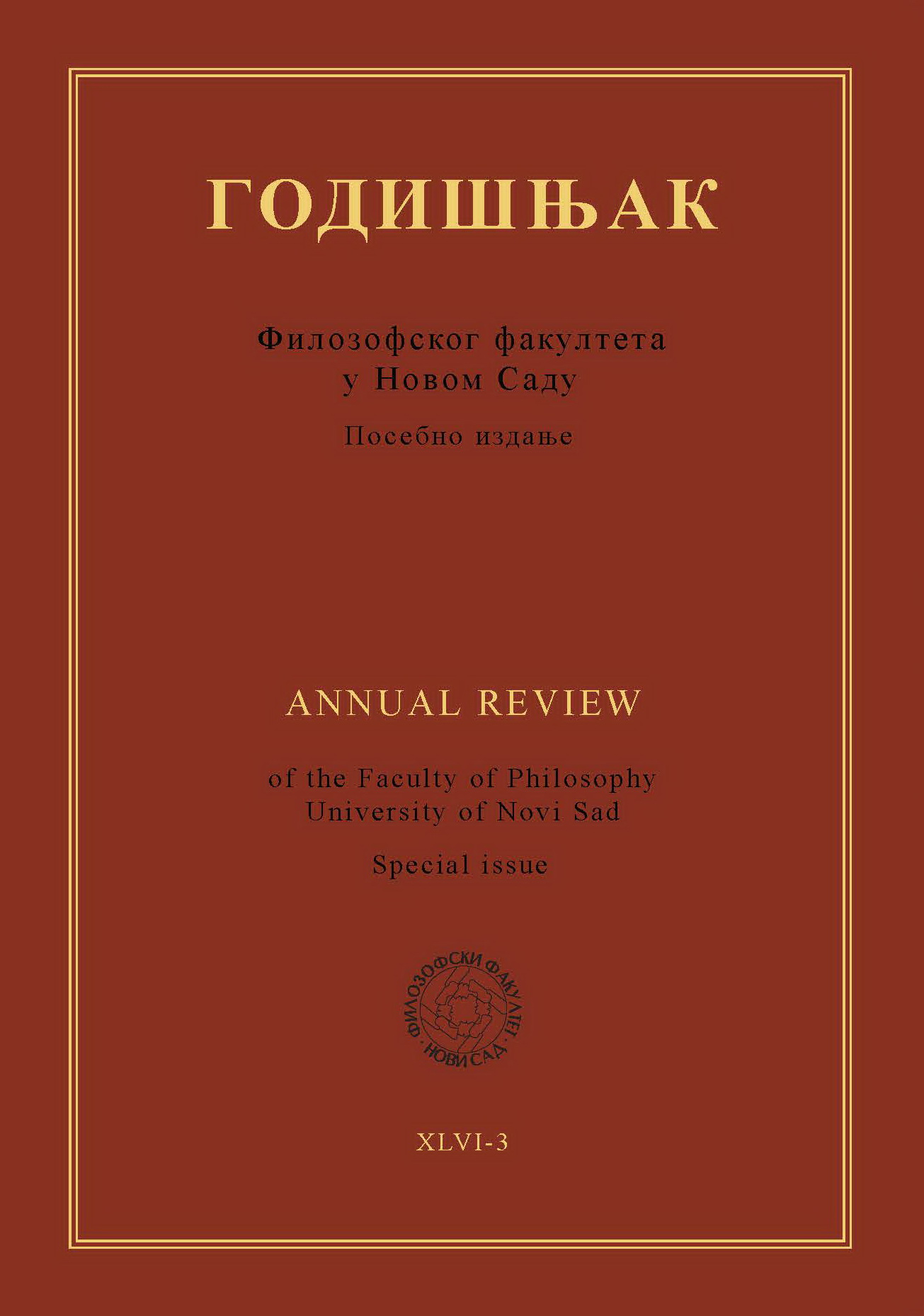THE CAUSATIVE PRONOUN DONT IN THE NOVELS BY RABELAIS AND IN CONTEMPORARY FRENCH
Main Article Content
Abstract
In this article, we discuss the ancient causative meaning of the relative pronoun dont, that flourished in the 16th century. We have chosen Rabelais’ five novels as our corpus. The causative dont had the particularity of having very often the entire main clause as its antecedent. The main clause had the value of cause, while the relative clause introduced by dont functioned as a consequence. It was most often the sentiment verbs of the subordinate clause that gave the possibility of using the relative in causative sense. The frequency of the causative dont compared to the other senses existing at the time (origin, means, manner...) is higher and counts almost 50% of occurrences, despite the possibility of overlap with the sense of origin and theme. The examples taken from the original compared to the modern French translations showed not only which expressions have replaced the causative dont nowadays (à cause de, par la suite de...) but also that it is possible to keep this correlative to create a more archaic stylistic effect within a literary text.
Downloads
Article Details

This work is licensed under a Creative Commons Attribution-ShareAlike 4.0 International License.
References
Rabelais, F. (1929a). Œuvres complètes de Rabelais. Le tiers livre. Paris : Éditions Fernand Roches.
Rabelais, F. (1929b). Œuvres complètes de Rabelais. Le quart livre. Paris : Éditions Fernand Roches.
Rabelais, F. (1929c). Œuvres complètes de Rabelais. Le cinquiesme livre. Lettres et écrits divers. Paris : Éditions Fernand Roches.
Rabelais, F. (1972). Pantagruel. Paris : Le Livre de Poche.
Rabelais, F. (1996). Gargantua. Paris : Editions du Seuil.
Rabelais, F. (2017). Les Cinq Livres des faits et dits de Gargantua et Pantagruel. Paris : Éditions Gallimard.
RÉFÉRENCES BIBLIOGRAPHIQUES
Anđelić, M. (2015). Dijahronijski pregled značenja odnosne zamjenice dont (Mémoire de master non publié). Filološki fakultet, Univerzitet u Beogradu, Beograd. (Анђелић, М. (2015). Дијахронијски преглед значења односне замјенице dont (Mémoire de master non publié). Филолошки факултет, Универзитет у Београду, Београд.)
Brachet, A. (1868). Grammaire historique de la langue française. Paris : Bibliothèque d’éducation J. Hetzel et Cie.
Brunot, F. (1933). Histoire de la langue française des origines à 1900 : De l’époque latine à la Renaissance. Paris : Librairie Armand Colin.
Drašković, V. (1977). Uvod u tumačenje starofrancuskih tekstova. Beograd : Naučna knjiga. (Драшковић, В. (1977). Увод у тумачење старофранцуских текстова. Београд : Научна књига.)
Foulet, L. (1930). Petite syntaxe de l’ancien français. Paris : Honoré Champion.
Grevisse, M. (1980). Le Bon usage. Paris : Duculot.
Grivaz, C. (2009). Un jeu de règles permettant de déterminer si une relation causale est exprimée entre des propositions. Nouveaux cahiers de linguistique française, 29, 173-195.
Haase, A. (1898). Syntaxe française du XVIIe siècle. Paris : Alphonse Picard et fils.
Moeschler, J. (2003). L’expression de la causalité en français. Cahiers de linguistique française, 25, 11-42.
Moignet, G. (1976). Grammaire de l’ancien français. Morphologie – Syntaxe. Paris : Klincksieck.
Nyrop, Kr. (1979). Grammaire historique de la langue française. Syntaxe. Particules et verbes. Genève : Slatkine reprints.
Picoche, J. (1979). Précis de morphologie historique du français. Paris : Nathan.
Popović, M. (2014). Istorija francuskog jezika. Beograd : Jasen.
Rossari, C. (1996). Les marques de la consécution : propriétés communes et distinctives à la lumière de donc, de ce fait, et il en résulte que. Dépendance et intégration syntaxique, 271-284. DOI: https://doi.org/10.1515/9783110955286.271
Zinc, G. (1994). Morphologie du français médiéval. Paris : PUF.




